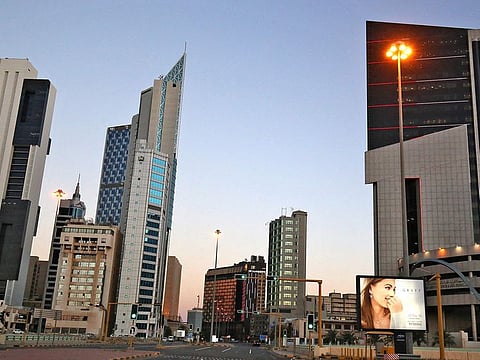Protesters in Kuwait demand return of political figures living in exile
Call on passing of amnesty law and allowing the return of political activists

Kuwait City: Several Kuwaitis, including former members of parliament and political activists, held a demonstration at Sahat Al Erada demanding the return of political figures in exile and the passing of the amnesty law.
The peaceful demonstrators were holding signs with the names of those in exile and some gave speeches.
A former MP, Faisal Al Yahya, said problems and corruption have increased in the country due to the absence of a real opposition for nearly eight years,
Amnesty law
While there are several versions of the amnesty law, political activists and the opposition have been calling on passing an amnesty law which would pardon former political figures that fled Kuwait due to fear of being jailed.
There are several amnesty draft laws that have been proposed in the past, some of which stipulate pardoning those that partook in one event, while others ask for pardoning based on a time frame.
During the previous parliamentary term, three amnesty draft laws were proposed, one of which asking for those that took part in November 16 and 17, 2011 protests to be pardoned. The protesters stormed into the parliament building after a no-confidence request against the former Prime Minister, Nasser Al Mohammed Al Sabah, was shot down.
Musallam Al Barrak, one of the key opposition figures
A prominent figure in exile is Musallam Al Barrak a former MP and a staunch critic of the government.
Al Barrak left Kuwait in May 2018, days before the court was supposed to release a final verdict for the 67 defendants that were being charged for storming the parliament back in 2011. In 2013, the criminal court acquitted all suspects, which was then overturned by the court of appeals in 2017, and sentenced the 67 defendants to jail terms of one to nine years. Al Barrak was given a seven-year sentence.
The incident comes after Al Barrak served a two-year prison sentence for insulting the country’s Emir, according to authorities, during a speech he gave in 2012. Shortly after his speech, he was arrested on October 29, but was released four days later after nationwide protests broke out demanding his release. A year later, the lower Criminal Court gave him a five-year prison sentence which was then reduced to a two-year sentence by the appeal court in 2015.
One of the most prominent opposition figures, Al Barrak was a member in the Kuwaiti parliament between 1996 and 2012. He was a vocal opponent of the Emiri decree that resulted in changing the electoral law in 2012.
Sign up for the Daily Briefing
Get the latest news and updates straight to your inbox









